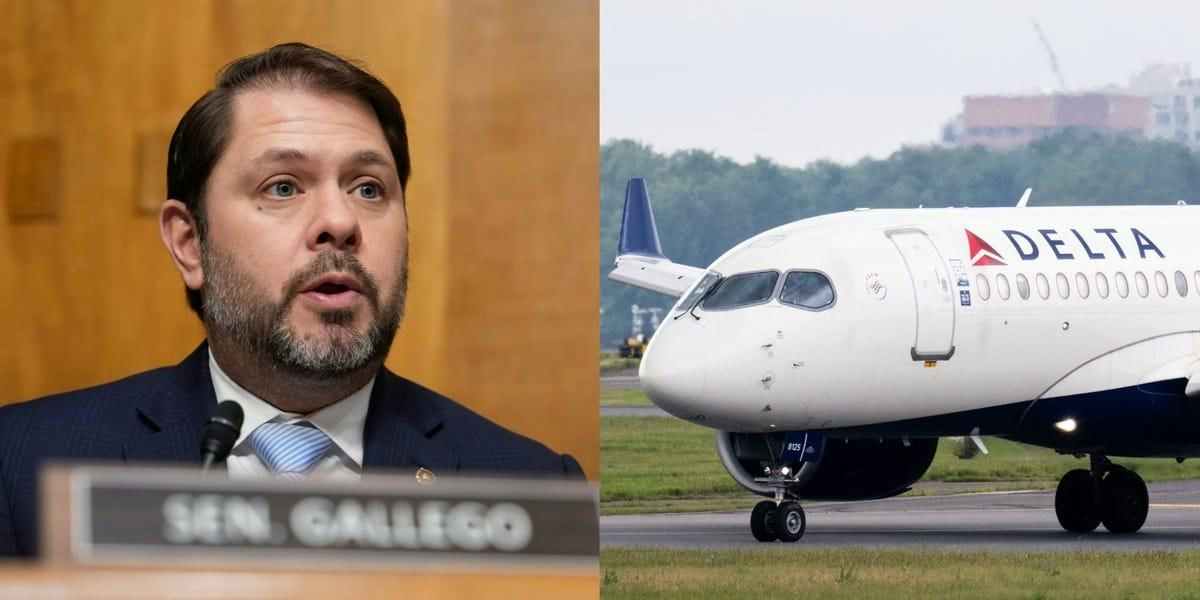エアロジニー — あなたのインテリジェントな副操縦士。
現在のトレンド
Categories
Senators Seek Clarification on Delta’s New AI Pricing Strategy

Senators Question Delta Air Lines on AI-Driven Pricing Strategy
Senators have expressed significant concerns regarding Delta Air Lines’ newly introduced artificial intelligence-based pricing model, which seeks to tailor ticket prices according to individual user data. On Monday, Senators Ruben Gallego of Arizona, Mark Warner of Virginia, and Richard Blumenthal of Connecticut jointly addressed a letter to Delta, requesting detailed clarification on the types of data the airline intends to utilize and the extent of its AI implementation.
Privacy and Pricing Concerns
The senators highlighted that Delta’s current and proposed individualized pricing methods raise serious data privacy issues. They also warned that this approach could result in fare increases calibrated to each consumer’s personal financial threshold, a troubling prospect amid the ongoing economic pressures faced by many American families. Their letter emphasized the potential for AI-driven pricing to exacerbate affordability challenges at a time when household budgets are already strained.
Delta’s president, Glen Hauenstein, recently informed investors that the airline plans to expand its AI-based pricing to cover 20% of its domestic routes by the end of the year, a significant increase from the current 3%. The airline initially unveiled this AI pricing initiative at an investor event last November, describing it as a comprehensive overhaul of its pricing methodology. Hauenstein noted in July that the company remains in an intensive testing phase and has been encouraged by preliminary outcomes.
Industry Implications and Company Response
While dynamic pricing—adjusting fares based on demand, timing, and booking channels—has long been standard practice in the airline industry, the application of AI to personalize prices at the individual level has raised concerns about potential price discrimination. Lawmakers fear that AI algorithms could identify each traveler’s maximum willingness to pay, thereby driving fares higher for certain customers.
Delta has responded by asserting that its dynamic pricing model does not incorporate personal information. A company spokesperson told Business Insider that the airline’s approach explicitly avoids using individual personal data to determine fares.
As Delta continues to develop and test its AI pricing strategy, the broader market’s reaction and competitors’ responses remain uncertain. The airline’s initiative is still in its experimental stages, and the potential impact of widespread AI-driven individualized pricing on the industry and consumer costs has yet to be fully understood.
The senators’ inquiry reflects increasing scrutiny over the use of artificial intelligence in consumer markets, particularly regarding transparency, fairness, and data privacy. Delta has not issued a public response to the senators’ letter at this time.

Emirates Unveils Cabin Design for New Boeing 777X

Eighteen Years On, the Airbus A380 Remains Central to a $34 Billion Airline

How a boom in luxury airline seats is slowing down jet deliveries

Navitaire Outage Attributed to Planned Maintenance

Airbus Plans Record Delivery of 870 Aircraft in 2026

DigiYatra Debuts Outside Aviation at India AI Impact Summit

Vietnam Orders Strengthen Boeing’s Commercial Outlook

Airbus Signals Uncertainty Over Future A400M Orders

JobsOhio Awards $2 Million Grant to Hartzell Propeller for Innovation Center

Collins Aerospace Tests Sidekick Autonomy Software on YFQ-42A for U.S. Air Force CCA Program
